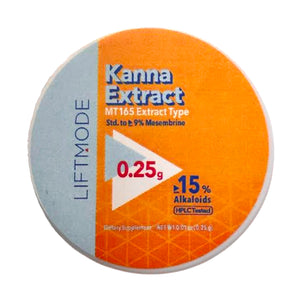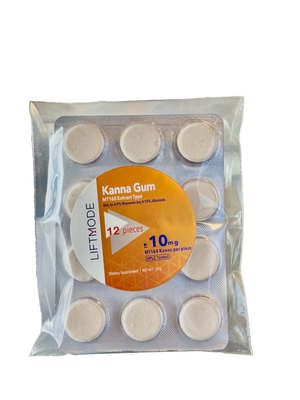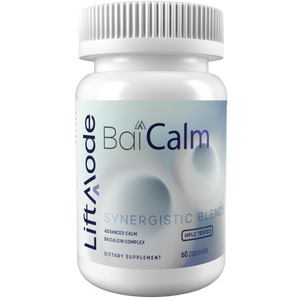Melatonin is a sleep hormone produced naturally by the body and is most commonly known for its important role in regulating our body’s cycle of falling asleep and waking up.
Beyond regulating our sleep cycles, melatonin has also been found to play an important role in cardiovascular health, as well as supporting a healthy immune system
[1] With melatonin supplementation becoming increasingly more popular, it is important that we are well clued up on the side effects and interactions that can occur.
![]()
Common Melatonin Side Effects
Up to now, research has shown that melatonin supplementation is generally considered safe in the short-term (3 months or less), even when taken in very high doses.
[2]
In a large review looking at the safety of melatonin supplementation in humans, several studies did, however, report general side effects, including dizziness, head pain and stomach discomfort
[3].
Recent research suggests that melatonin supplementation may also result in further side effects inlcuding reducing body temperature and blood thinning.
A single dose of melatonin (3mg) has been shown to lower the levels of blood-clotting markers,
[4] and that within 60 minutes after receiving the melatonin supplement, subjects may present with lower levels of blood clotting factors.
One of the most recent Melatonin side effects is its effect on reducing body temperature. In a randomised study done on healthy males, melatonin was found to significantly lower core body temperature at 3-mg and 9-mg doses in a dose-dependent manner.
[5]
![]()
Important Melatonin Interactions
Melatonin and blood-thinning
Melatonin has been shown to interact with the body’s ability to clot blood and it is therefore not recommended to take melatonin supplements with blood-thinning medication.
[6]
Melatonin and sleeping pills
Research does not support the use of melatonin in conjunction with sleeping aids.
As discussed earlier, Melatonin plays an important role in regulating our ability to fall asleep, with a common side effect being drowsiness. It is therefore not recommended to take melatonin supplements if you are already on any sleeping aids.
![]()
Melatonin Supplementation for Children
Today, melatonin is being increasingly supplemented in children with sleep disorders.
[7] It is known that melatonin supplementation is increasing amongst adults and that it is generally regarded as safe, but what about children?
There is currently limited research to support the use of melatonin in children. The dose of Melatonin given to children needs to be individualised depending on the severity and type of sleep problem.
[8]
Given the large variety of Melatonin supplements currently available in today’s market and the current inconclusive evidence on Melatonin dosage in children, your doctor should always be your first step before considering supplementing your children.
Conclusion
Melatonin is generally regarded as safe in adults but it is not recommended in children given the lack of research on appropriate dosing. Common Melatonin side-effects that can occur include head pain, stomach discomfort and day-time drowsiness.
It is not recommended to take Melatonin supplements during the day due to the risk of day time drowsiness occurring or if you are currently taking any sleeping aids as melatonin has been shown to enhance the effects leading to increased drowsiness.
Furthermore, this supplement has been shown to have interactions with blood-thinning medication and sleeping aids. Further research is required to determine the safety of using melatonin in these conditions.
![]()
Citations and Supporting Literature
[1] Tordjman, S., Chokron, S., Delorme, R., Charrier, A., Bellissant, E., Jaafari, N., & Fougerou, C. (2017). Melatonin: Pharmacology, Functions and Therapeutic Benefits.
Current Neuropharmacology,
15(3), 434–443.
[2] Buscemi, N., Vandermeer, B., Hooton, N., Pandya, R., Tjosvold, L., Hartling, L., Vohra, S. (2005). The efficacy and safety of exogenous melatonin for primary sleep disorders. A meta-analysis.
Journal of general internal medicine,
20(12), 1151–1158.
[3] Andersen LP, Gögenur I, Rosenberg J, Reiter RJ. ( 2016). The Safety of Melatonin in Humans.
Clin Drug Investig, 36(3):169-75.
[4] Wirtz, P. H., Spillmann, M., Bärtschi, C., Ehlert, U., & von Känel, R. (2008).
Oral melatonin reduces blood coagulation activity: a placebo-controlled study in healthy young men.
Journal of Pineal Research, 44(2), 127–133.
[5] Satoh, K., & Mishima, K. (2001). Hypothermic action of exogenously administered melatonin is dose-dependent in humans.
Clinical Neuropharmacology. 24(6), 34-340.
[6] Wirtz, P. H., Spillmann, M., Bärtschi, C., Ehlert, U., & von Känel, R. (2008). Oral melatonin reduces blood coagulation activity: a placebo-controlled study in healthy young men.
Journal of Pineal Research, 44(2), 127–133.
[7] Kennaway, D. J. (2015).
Potential safety issues in the use of the hormone melatonin in paediatrics. Journal of Paediatrics and Child Health, 51(6), 584–589.
[8] Esposito, S., Laino, D., D'Alonzo, R., Mencarelli, A., Di Genova, L., Fattorusso, A., Mencaroni, E. (2019). Pediatric sleep disturbances and treatment with melatonin.
Journal of translational medicine,
17(1), 77.
![]()
![]()
![]()
![]()




